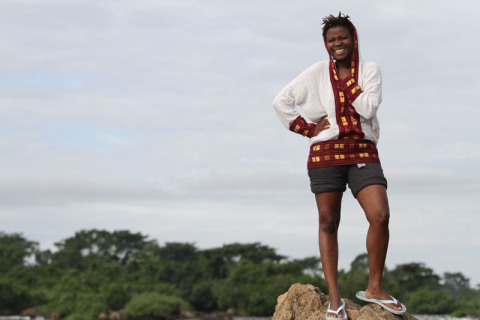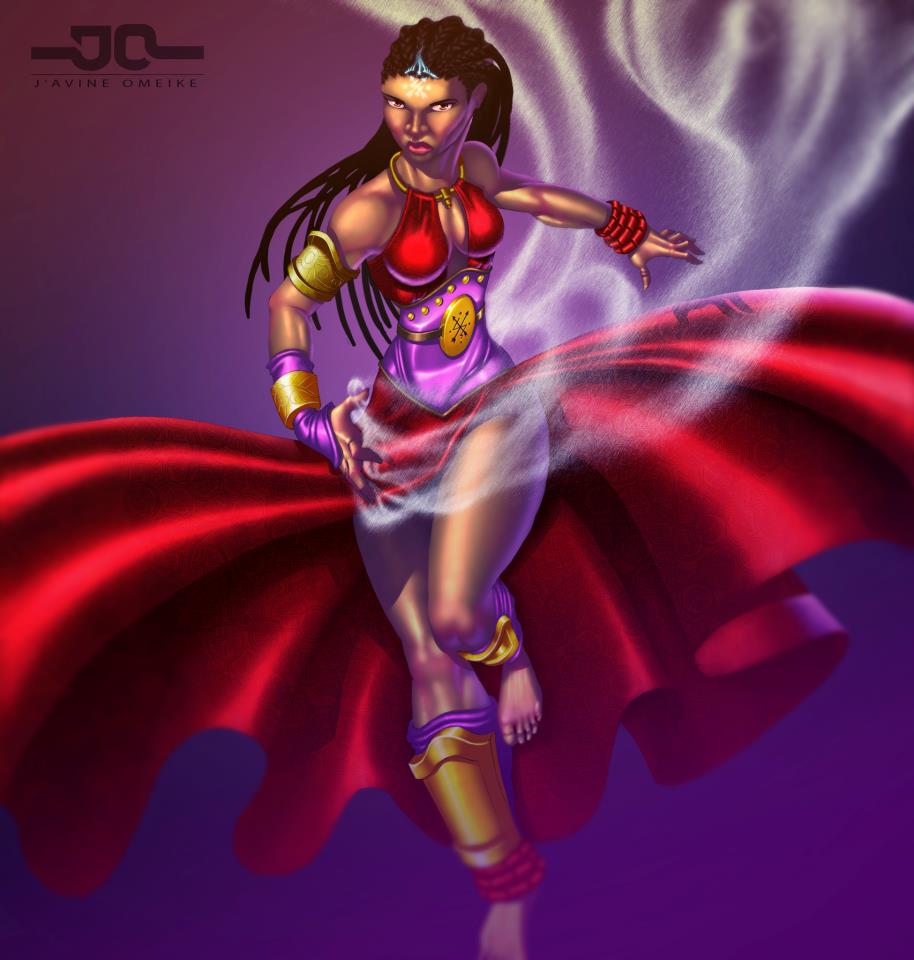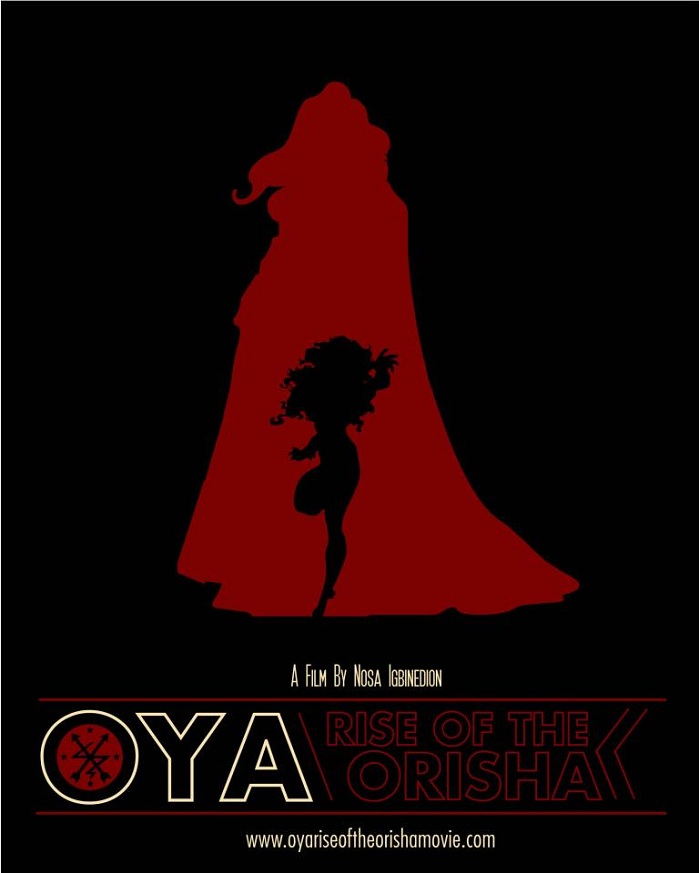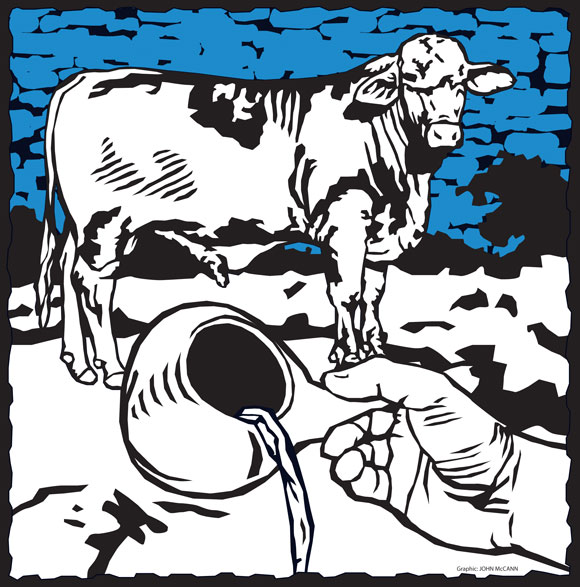Human traffic flows into Nairobi’s traffic department every morning from 4am, well before the sun is out. The compound is vast. It has cells, a restaurant, a police station, the police doctor’s office and a huge parking lot.
I stood in the freezing weather with my friend Mike behind a queue of people who seemed to be in different stages of pain and healing. We were here for the all-important P3 form, a medical examination report. The police doctor has to complete and sign this form before victims of crime can report to the local police station and press charges. It is produced in court as evidence.
A guy called Jontes stood behind Mike, twitching like a leaf in the cold weather in a faded T-shirt. The day before, Mike had arrived late – 7am. He was number 66 in line so he never made it into the office of Kenya’s only police doctor, Dr Zephaniah Mwangi Kamau.
Mike was assaulted by his ex-wife. She punched and scratched his face at a bus stand, and verbally tormented the poor guy until he left her and moved out with his kids. She continued to stalk him so Mike wanted an end to this. I was here to give him moral support.
At 6am, a woman selling tea, uji (porridge) and mandazis (fried buns) walked in. We bought some for ourselves and for Jontes, who had a bulging black paper bag filled with humongous cabbages. We turned down his offer to buy, but he did manage to sell some to a woman with a bandage around her head.
We rushed back to the waiting lines, where some guys in smart suits were lurking. They looked like police officers but they were brokers – for a fee of R10 to R20, they would arrange for latecomers to cut in line ahead of those of us already waiting. Jontes advised us to ignore them; no one would be planted in front of us.
As we waited, rumour spread that Dr Kamau had gone to his father’s funeral but Jontes, a hustler who changes professions wherever opportunity knocks, told us to sit tight. He’d been here many times before and he knew the doctor might appear at any moment.
Today Jontes was here because he’d recently been beaten by five guys in a drunken bar brawl. His face and hands were scarred with numerous dents. Jontes could be described as … deliberately belligerent. Once someone had beaten him in a drunken brawl. When he got his hands on a P3 form, his assailant paid him R8 000 as an out-of-court settlement. In three previous incidents, Jontes was paid amounts of R3 000, R4 000 and R2 500 to drop assault charges against his attackers. This time Jontes was anticipating a big cheque: five guys, R3 000 each.
When news that the Dr Zephania was attending his father’s funeral spread, some people dispersed. One of the brokers who had been pocketing twenties ran away so he wouldn’t have to do refunds. Twenty minutes later he removed his coat and tie and came back to the lines, looking for new arrivals. A disgruntled ‘customer’ shouted, pointing him out, and soon he was at the receiving end of some harsh slaps.
Meanwhile the crowds continued streaming in. The rich came in their Benzes and BMWs and the poor arrived on foot, some adults being held like babies. There were victims of road accidents, domestic violence, street fights, robberies, arson, sexual violence and other kinds of violent attacks that made my stomach queasy. Young children clad in school uniform were here too, but the majority of people were women.
There was a spirit of equality and justice at the station. This is one place where Kenyans, despite being politically divided, can share common troubles. The rich and the poor queued as equals as they shared their life stories. It was a form of while-we-wait therapy: a poor guy who’d survived a brutal assault would chat and laugh with a rich guy who had endured a harrowing robbery ordeal. Some people had travelled hundreds of kilometres from the arid Turkana county near the border; Nakuru, famous for its flamingos; and the semi-arid Maasai land of Narok in the Rift Valley province.
The doctor finally arrived around 9am from his father’s burial. He asked who had been unattended to the previous day. Mike’s card showed he had been number 66, but after the brokers added more people to the lines, the prospect of waiting yet another day seemed very real. There were loud protests from the crowd. The good doc shushed us, smiled and asked if there was anyone among us who had ever lost someone close.
Mike raised his hand. Doctor Kamau asked him which ethnic community he came from. Then he asked how long it took for him to get back to work after grieving.
“A week,” Mike said.
“I have just buried my father two hours ago and I’m back at work,” the doctor said, still smiling.
He listened to us and recommended our names be written down for faster dispensation of our case. Eventually, Mike went into the old colonial office for his medical check-up. I waited for him outside. Five minutes later, he came out with the all-important P3 form. He told me that the doc had asked him, behind plumes of cigarette smoke, why he did not hit his ex-wife back. They had both laughed at the awkward question. Now Mike was ready to go to the local police station to file his case and have his attackers summoned for a date in court.
Jontes was next to see the doc. He asked us to wait for him as he went in with his paper bag of vegetables. A little while later, he came out holding his P3 form like it was a lottery cheque. He had a spring in his step as he told us how he was going to make at least R10 000. He was certain he would win his case because there had been many witnesses , and his attackers – office workers – would have to pay him off to avoid losing their jobs.
Having got what we came for, it was time to head our separate ways. We gave Jontes 200 bob for transport. He jumped onto a moving bus, shouting promises of buying us more beer and nyama choma (braai meat) than we had ever seen in our lives – once he’d been paid out, that is.
Munene Kilongi is a freelance writer and videographer. He blogs at thepeculiarkenyan.wordpress.com





